Lighthouse Projects
In the framework of the Hightech Agenda the Free State of Bavaria funds so called Lighthouse Projects through Munich Quantum Valley. The Lighthouse Projects complement the research at Munich Quantum Valley towards the goal to develop, operate and provide access to quantum computers in Bavaria.
Bavarian Universities and research institutions as well as industry partners are working together to investigate the entire range of quantum science and technologies. With their research they cover enabling technologies and theoretical foundations in the fields of quantum communication, quantum sensing and metrology, quantum simulation and quantum computing.
AI-Assisted Design for Scalable, Efficient and Highly Structured Quantum Circuits for Quantum Chemistry (KID-QC²)
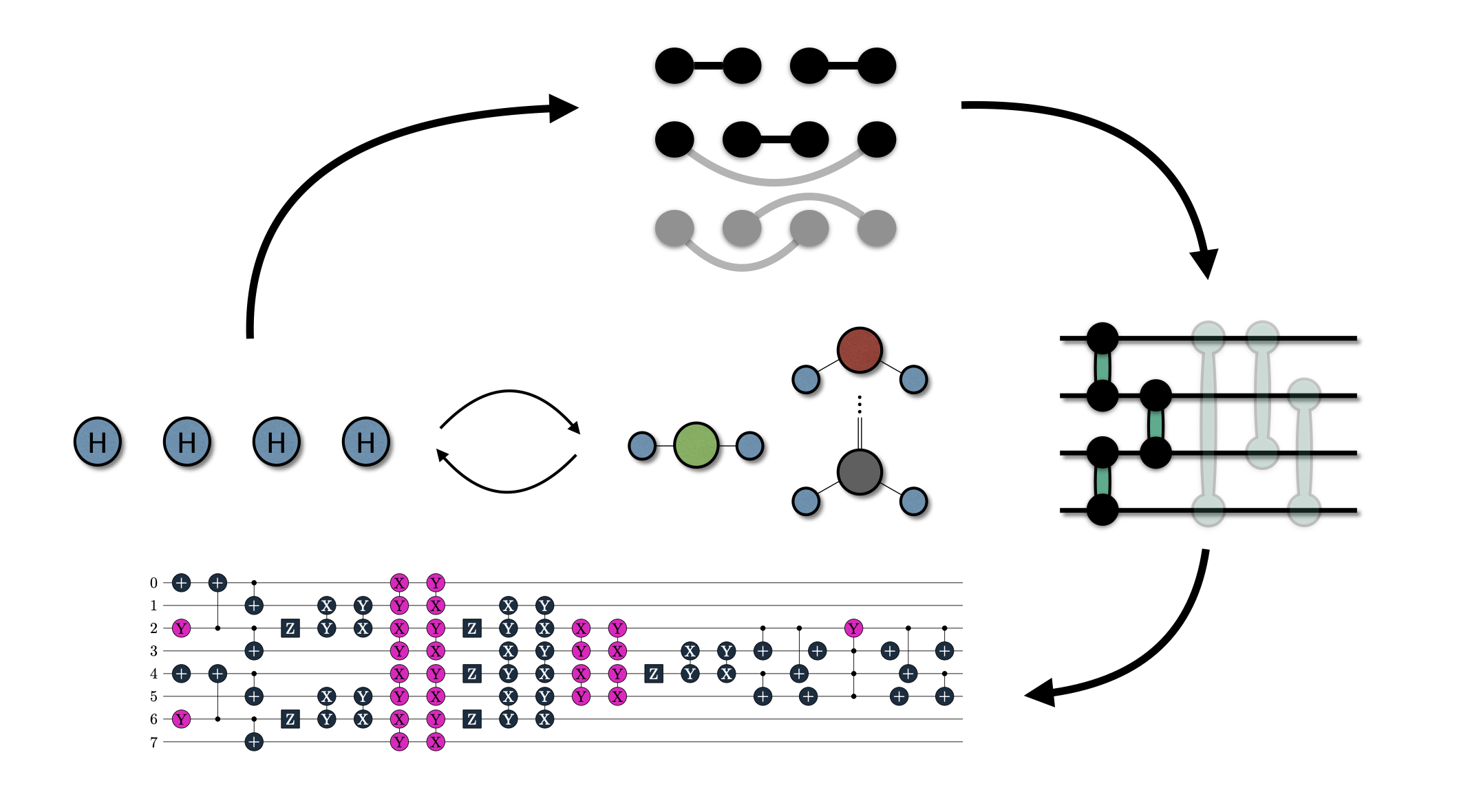
Within the KID-QC^2 project, the Fraunhofer Institute for Integrated Circuits IIS and its partner University Augsburg will leverage Artificial Intelligence (AI) to both automate and optimize the design of quantum circuits for quantum chemical calculations in an application- and hardware-platform-specific manner. The starting point here are so-called molecular quantum circuits, a recently developed, highly structured class of quantum circuits for quantum chemical applications. With the use of AI, they aim 1) to further optimize the structure of molecular quantum circuits, especially with regard to expressivity and runtime, 2) to make molecular quantum circuits scalable and thus applicable to larger problem instances, 3) to ensure the transferability of optimization strategies for circuit design between different problem instances, 4) to improve the feasibility of molecular quantum circuits with regard to existing and future hardware platforms. By using flexible AI methods and focusing on targeted structural improvements, the quantum circuits will not only be optimized for future generations of noisy intermediate scale quantum (NISQ) devices. In fact, it is expected that the developed methods and generated circuits are transferable to early fault-tolerant and error-corrected quantum hardware and can pave the way to optimized exploitation of a limited number of logic qubits for quantum chemistry applications.
Contact
Dr. Daniel Scherer, Fraunhofer IIS
Prof. Jakob S. Kottmann, University of Augsburg
Application-driven Benchmarking of Quantum Computers (Bench-QC)
The project Bench-QC is a cooperation between industrial and research partners of different expertise. They aim to develop and implement a universal framework to allow a quantitative comparison of entire solution approaches of industrial problems using quantum computing as the practical usability of quantum computing hardware in industrial applications strongly depends on the combination of case application, used algorithm, mathematical problem formulation and given hardware parameters.
From the scientific side Bench-QC is supported by the Fraunhofer-Gesellschaft (FhG), the Fraunhofer Institutes for Cognitive Systems (IKS) and for Integrated Circuits (IIS). They are working together with various industry partners.
Contact
Dr. Johannes Oberreuter, Machine Learning Reply GmbH
Diamond-Based Quantum Sensor Technology in the Quality Control of the Next Generation of Semiconductors (QuQuSemi)
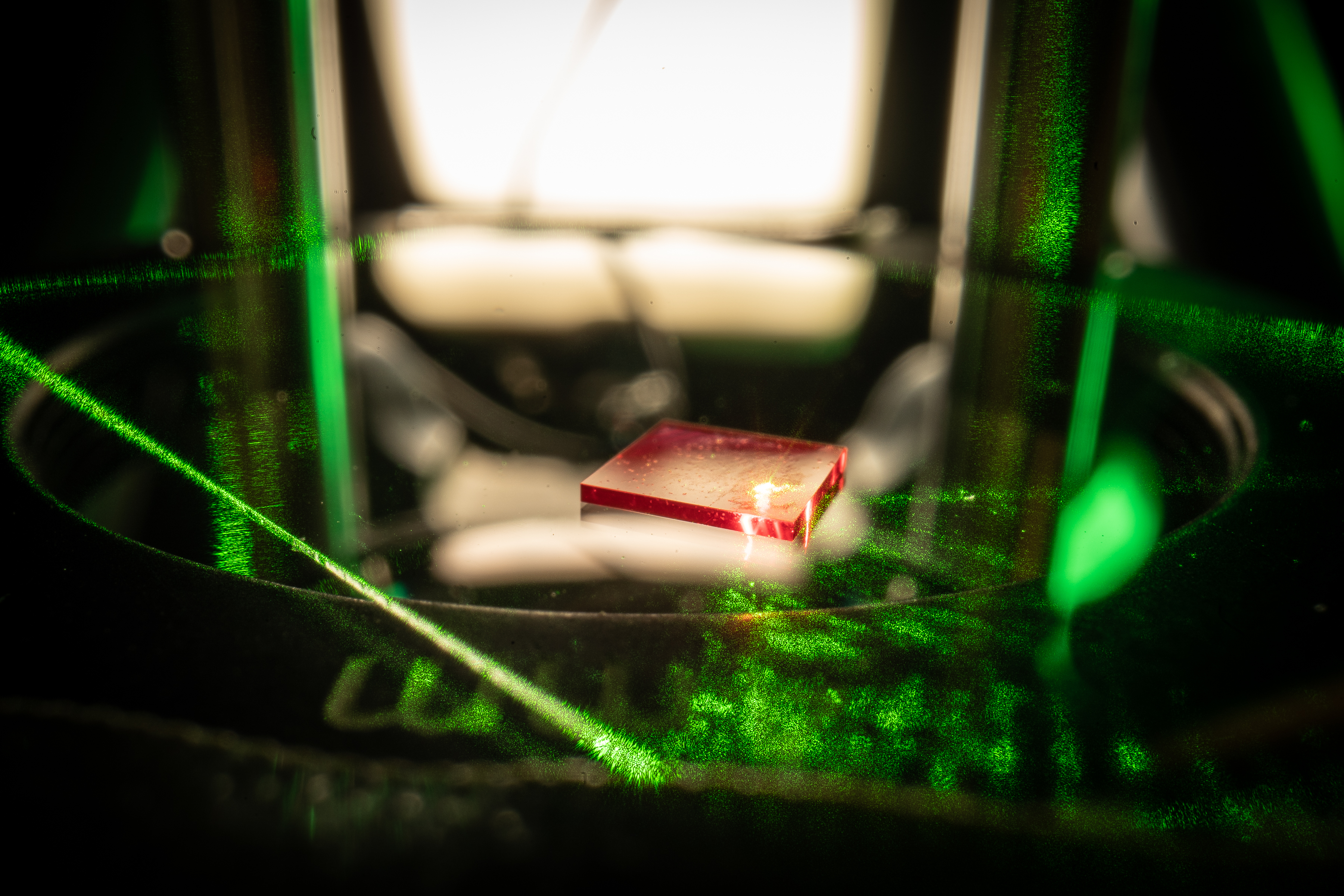
As part of the QuQuSemi project, QuantumDiamonds, together with its project partners, the Fraunhofer Institute for Electronic Microsystems and Solid State Technologies (EMFT) and the Technical University of Munich (TUM), is developing a high-resolution microscope based on nitrogen vacancies in diamonds. This microscope enables the measurement of minute temperature differences and magnetic fields under normal environmental conditions.
Given the increasing integration of circuits in complex multi-chip modules and the power supply from the back of the chip, localising faults using conventional methods is almost impossible. As part of the project, the microscope envisaged aims to close this gap by enabling fault analysis for the next generation of chips due to its ability to image temperature and high-resolution magnetic fields.
Contact
Dr. Fleming Bruckmaier, Quantum Diamonds
Free-Electron States as Ultrafast Probes for Qubit Dynamics in Solid-State Platforms
The Lighthouse Project "Free-electron states as ultrafast probes for qubit dynamics in solid-state platforms" aims to develop a prototype of an ultrafast transmission electron microscope (UTEM) to investigate the quantum dynamics of singular qubits. The scientist's goal isto establish ultrafast electron microscopy as one of the fundamental characterization techniques for the future quantum industry.
The project is realized by the University of Regensburg.
Contact
Prof. Dr. Ferdinand Evers, University of Regensburg
Prof. Dr. Sascha Schäfer, University of Regensburg
High-Efficiency Stabilizer Codes (HESC)
The HESC project aims to develop new techniques to improve the reliability of quantum-information processing. Quantum computers hold immense potential to speed up the solution of certain problems. However, they are also prone to errors. Quantum error correction codes protect quantum information from errors by mapping many unreliable physical qubits into a few reliable logical qubits. Within HESC, new quantum-error-correction codes from the family of stabilizer codes will be studied together with their associated decoding algorithms.
The project is carried out by DLR's Institute of Communications and Navigation.
Contact
Dr. Francisco Lázaro, German Aerospace Center (DLR)
High-Precision Laser Systems for Quantum Control and Quantum Clocks (Qlock)
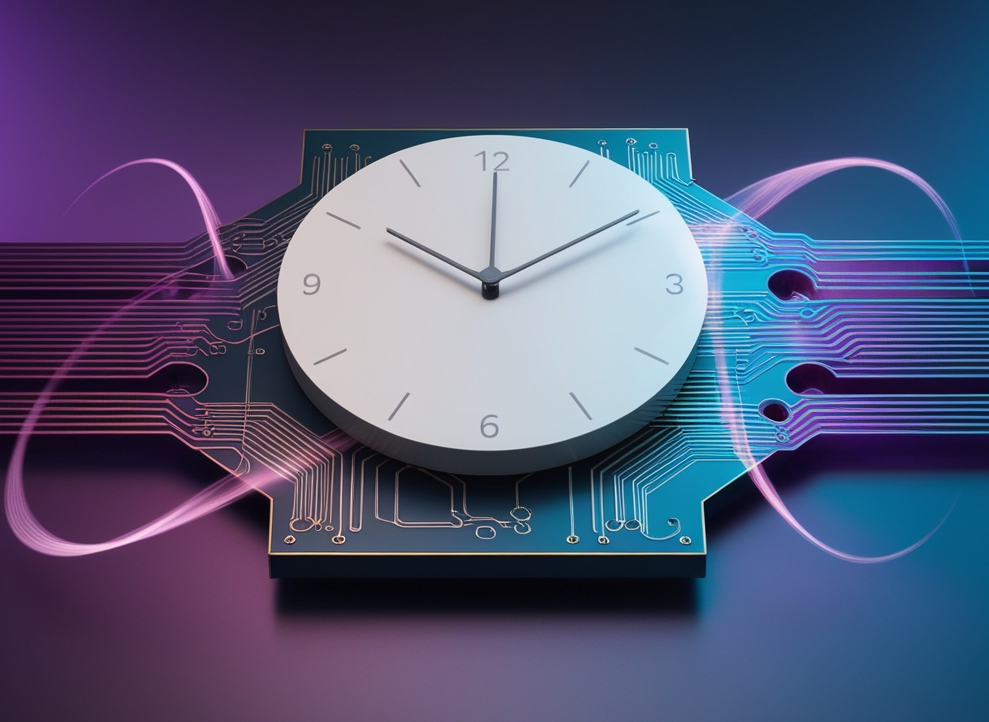
High-precision laser systems play an important role in the search for new quantum effects and in the control of quantum systems. To achieve a high quality of individual operations and measurements, typcial noise sources must be suppressed effectively and robustly. Qlock is investigating novel approaches to laser stabilization that have fundamental advantages over state-of-the-art systems for time measurements and frequency stabilization. The focus is on three parallel development paths:
- Robust, cryogenic optical fiber resonators to overcome technical and fundamental stability limits.
- Chip-based quantum systems as a frequency reference with a significantly reduced volume and vibration sensitivity.
- Quantum clock based on hydrogen-like helium ions, which could modernize the SI-system.
The aim is to surpass state-of-the-art systems in terms of accuracy, compactness, robustness and computability.
Qlock is a joint project with the Technical University of Munich (TUM) and the Max Planck Institute of Quantum Optics (MPQ) under the leadership of the German Aerospace Center (DLR).
Contact
Dr. Andreas Hänsel, DLR
High-Quality Resonators for Topological Qubits (TopQuRes)
Contact
Dr. Armin Klumpp, Fraunhofer EMFT
Highly Scalable Technology Modules for Quantum Computing, Quantum Communication and Quantum Sensing with SiC (TeQSiC)
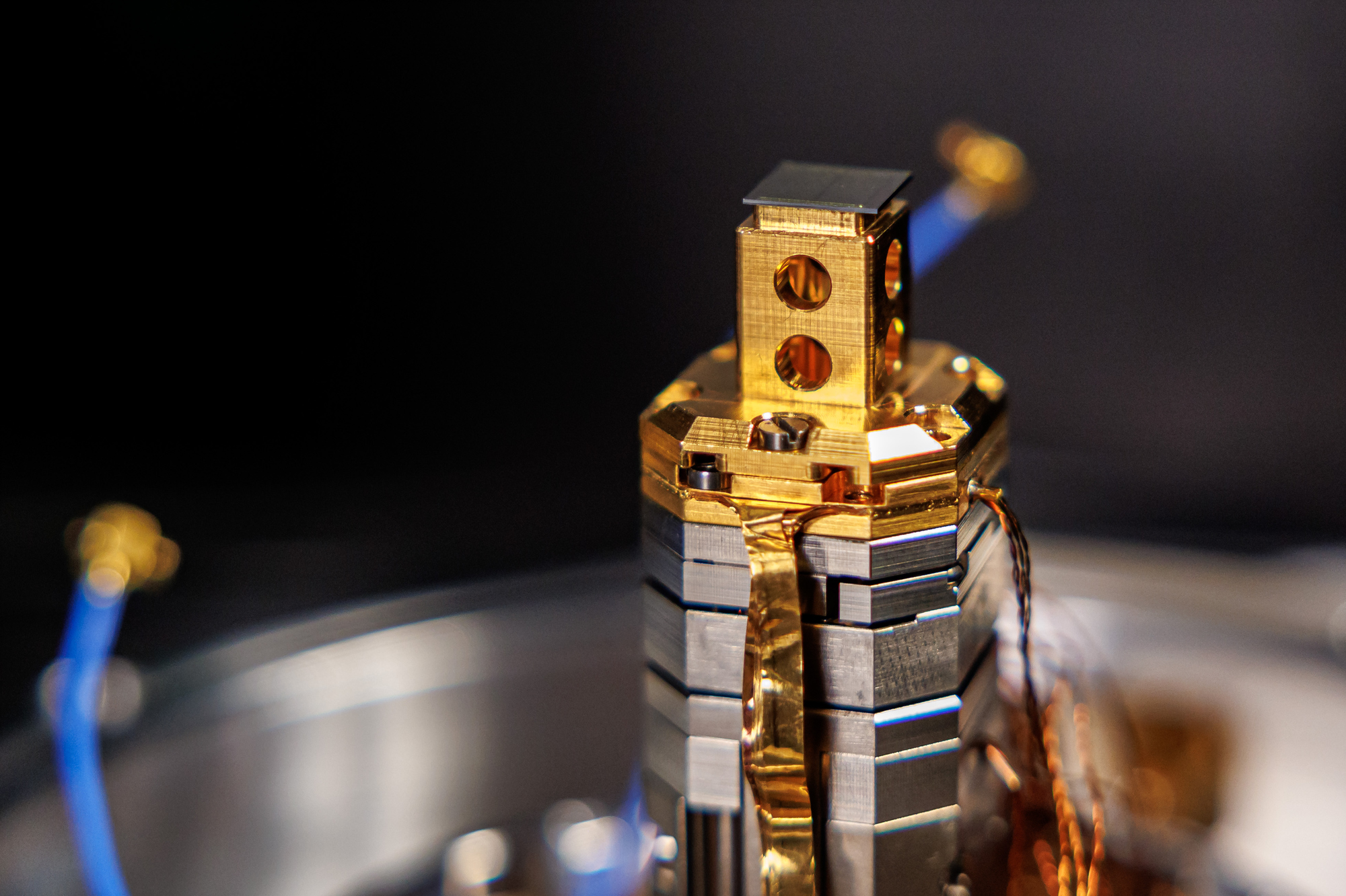
The focus of TeQSiC is to establish a reliable and scalable processing toolbox for solid-state quantum technology using silicon carbide (SiC). SiC is a mature material platform, especially for power electronic components, and has excellent quantum properties. In SiC it is possible to create defined point defects - known as color centers - that serve as quantum bits (qubits) in quantum devices. This offers the chance to build complete scalable quantum devices by combining photonics with the material and semiconductor process technologies. Quantum-photonic integrated solid-state devices that are compatible with established microelectronics could open the way for quantum technology in a wide range of applications.
TeqSiC is a collaboration between the Fraunhofer Institute for Integrated Systems and Device Technology IISB and the Max Planck Institute for the Science of Light (MPL) in Erlangen.
Contact
Dr. Patrick Berwian, Fraunhofer IISB
Integrated Spin Systems for Quantum Sensors (IQ-Sense)
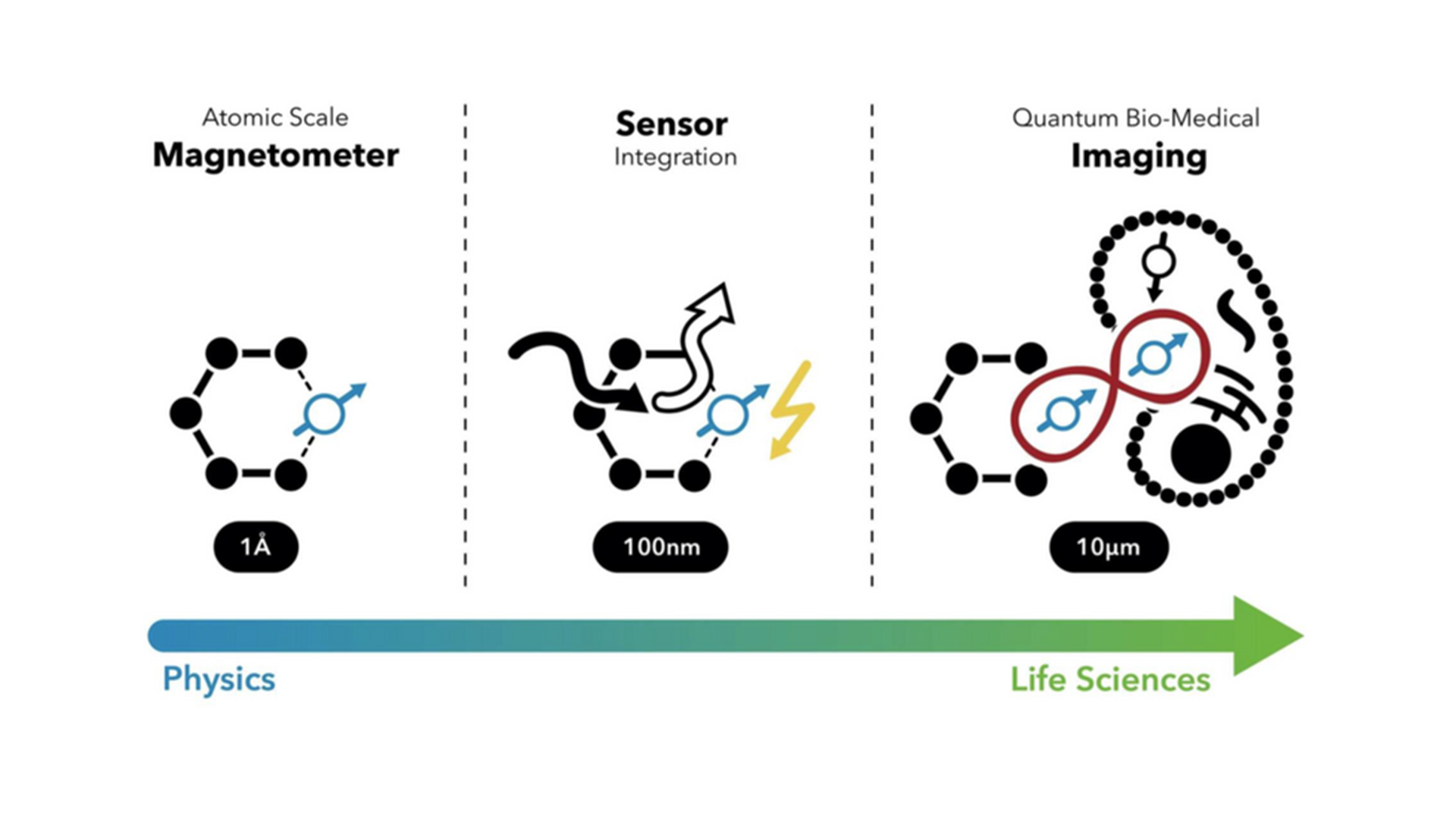
The goal of IQ-Sense is to develop and demonstrate integrated quantum sensors that surpass current sensors in terms of precision. The project links researchers from the natural sciences with scientists in the field of life science and medicine to tailor quantum systems for the detection of different measuring quantities to realize sensors with unprecedented sensitivity. The application scenarios for such sensors are manifold, especially in the life sciences.
IQ-Sense is a joint project by researchers from the Julius-Maximilians-Universität of Würzburg (JMU), the Walther-Meißner-Institute (WMI) of the Bavarian Academy of Sciences and Humanities (BAdW) and the Technical University of Munich (TUM).
Contact
Prof. Dr. Vladimir Dyakonov, Julius-Maximilians-Universität of Würzburg
Networked Quantum Systems (NeQuS)
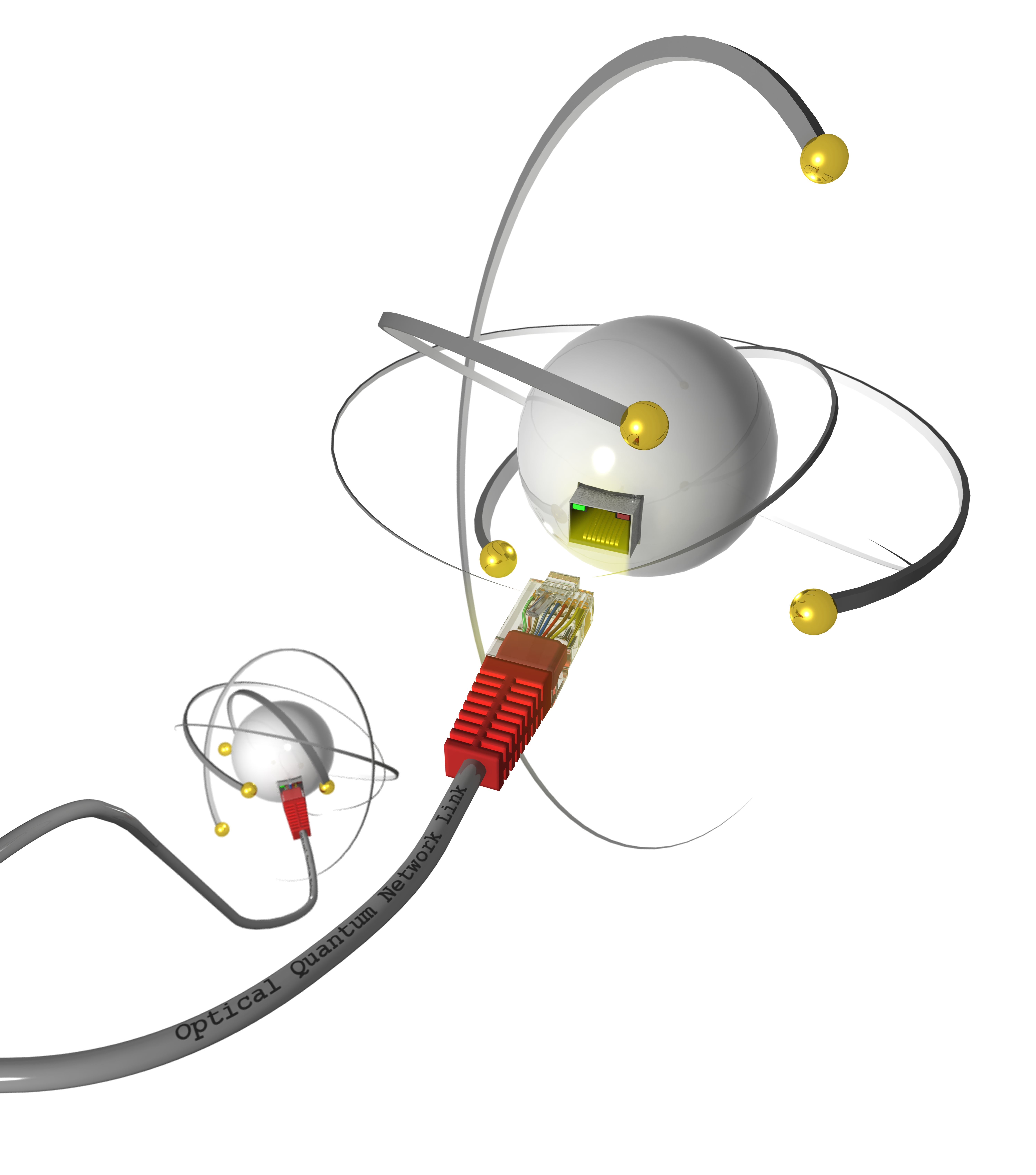
In this joint project researchers aim to connect different quantum systems to further the ultimate goal networking quantum computers and quantum sensors into a quantum internet. In a first step they develop an interface for the different quantum platforms to transfer quantum information to individual light particles. Subsequently, these light particles can be exchanged via optical fibers to connect different systems.
Scientists from the Technical University of Munich (TUM), the Ludwig Maximilian University of Munich (LMU), the Max Planck Institute of Quantum Optics (MPQ), the Walther Meissner Institute (WMI) of the Bavarian Academy of Sciences and Humanities (BAdW), and the Walter Schottky Institute (WSI) are working together in the NeQuS-Project.
Contact
Prof. Dr. Jonathan Finley, Walter Schottky Institute
Quantenkommunikationsinfrastruktur (QuKomIn)
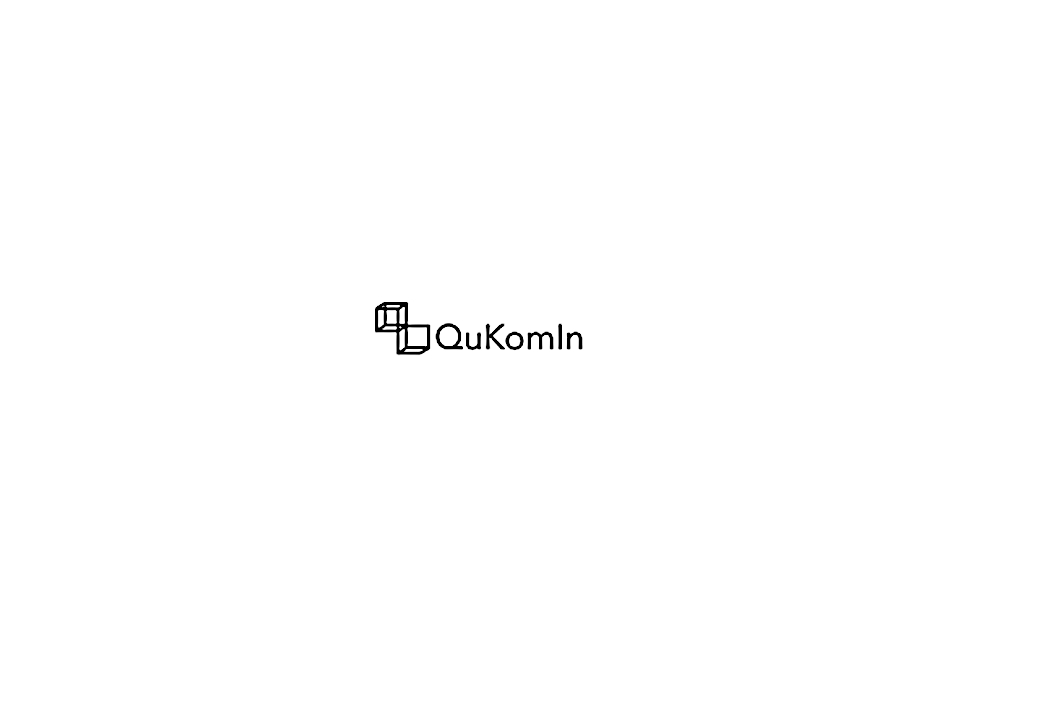
The project QuKomIn aims to build a real test infrastructure for quantum communication to ensure safe communication in the future. The infrastructure is to be set up in the form of a hybrid fiber-optic network with satellite links and application laboratories in the Erlangen/Nuremberg and Munich/Oberpfaffenhofen areas.
The project is headed by the Max Planck Institute for the Science of Light. They work together with researchers from the Friedrich-Alexander-Universität Erlangen-Nürnberg, the Fraunhofer Institute for Integrated Circuits (IIS), the German Aerospace Center (DLR) and the Ludwig-Maximilians-Universität München.
Contact / Links
Prof. Dr. Gerd Leuchs, Max Planck Institute for the Science of Light
Prof. Dr. Christoph Marquardt, Friedrich-Alexander-Universität Erlangen-Nürnberg
Quantum circuits with spin qubits and hybrid Josephson junctions
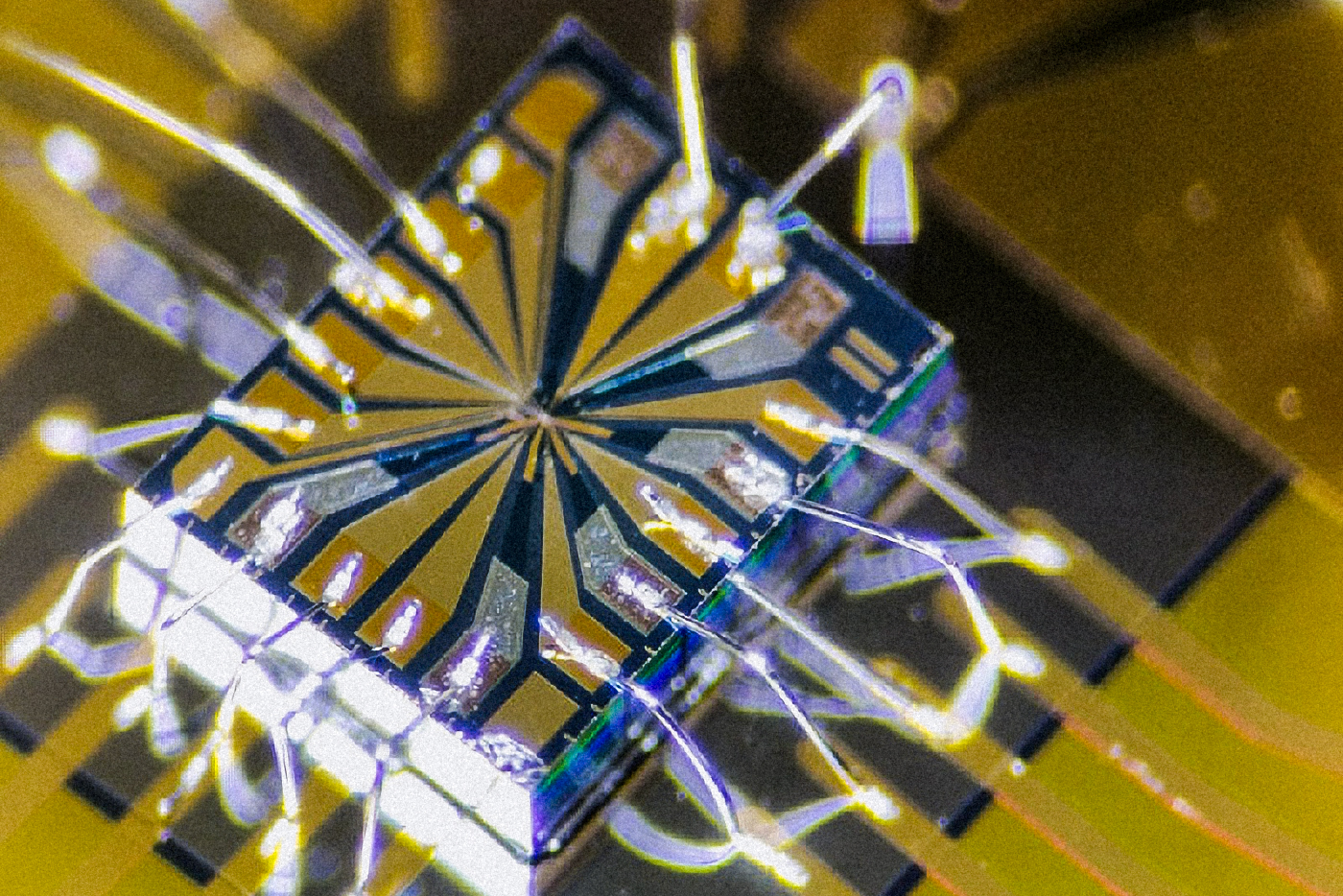
In the project “Quantum circuits with spin qubits and hybrid Josephson junctions” experimental and theoretical researchers join forces to connect different types of qubit circuits to benefit from their specific advantages and integrate them within a compact electronic chip. Their work is a prerequisite for the construction of future quantum computers based on semiconductor spin qubits and superconducting qubits.
The University of Regensburg (UR) is working on the project with four research groups.
Contact
Prof. Dr. Dominique Bougeard, University of Regensburg
Prof. Dr. Christoph Strunk, University of Regensburg
Quantum Measurement and Control for the Enablement of Quantum Computing and Quantum Sensing (QuMeCo)
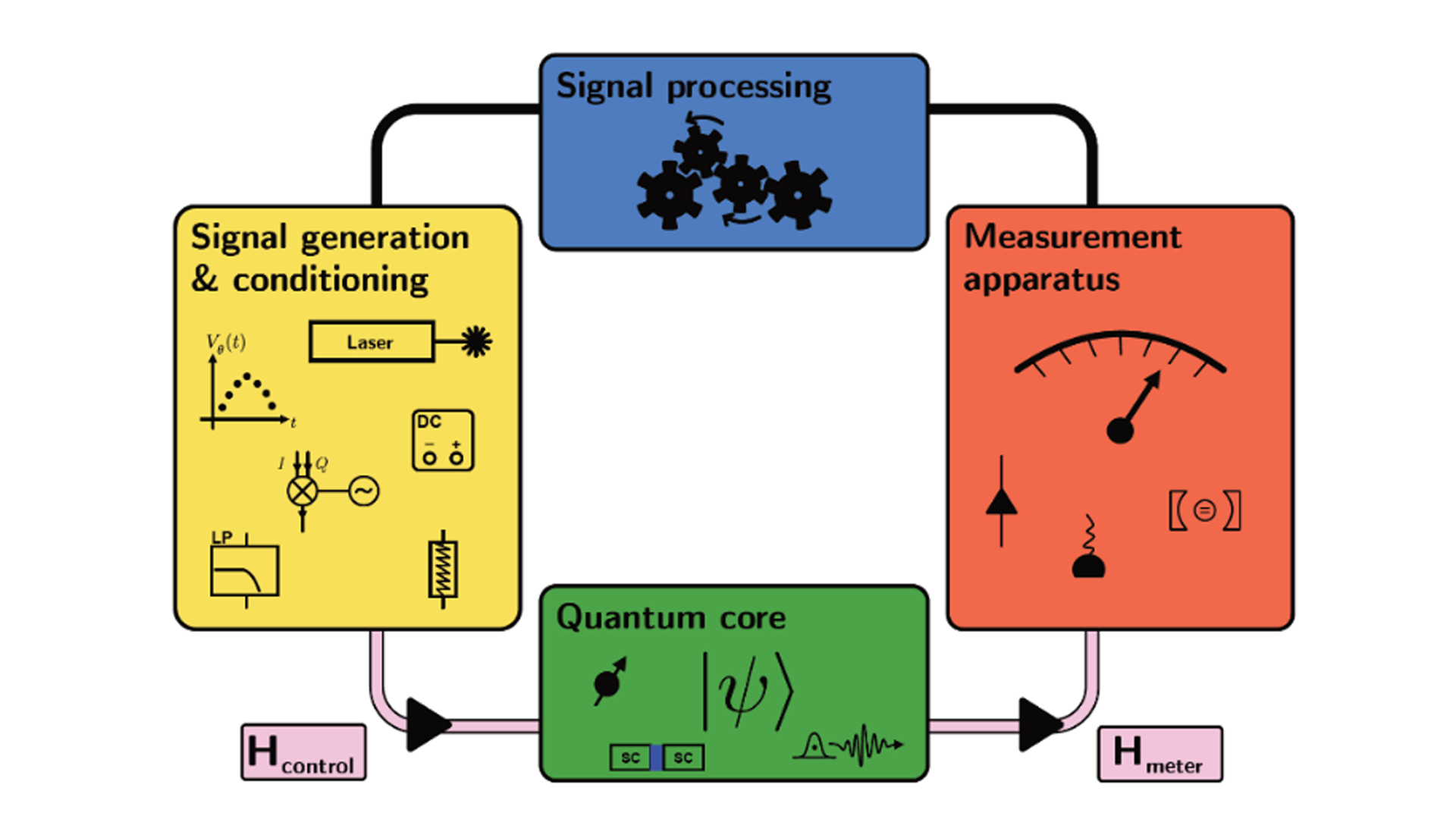
With interdisciplinary research at the interface between physics and electrical engineering, scientists in the QuMeCo-project address the challenge of controlling individual quantum objects without disturbing the fragile quantum-mechanical coherence. They aim to develop ultrafast photodetectors and sources of single entangles photons as well as to investigate quantum control involving machine learning.
QuMeCo is a project of the Friedrich-Alexander-Universität Erlangen-Nürnberg (FAU).
Contact
Prof. Christopher Eichler, Friedrich-Alexander-Universität Erlangen-Nürnberg